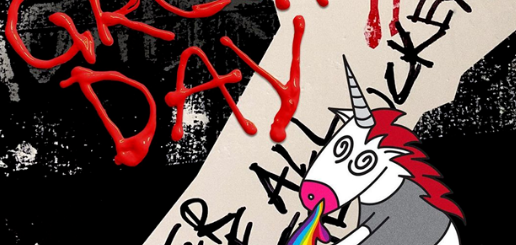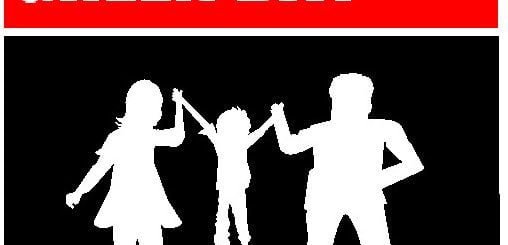“Wake Me Up When September Ends” by Green Day
“Wake Me Up When September Ends” came out as part of Green Day’s multi-platinum 2004 concept album “American Idiot”, which is centered on the life of a fictional character. However, such is not the case of this track. Rather, this song is based on events in the real life of Billie Joe Armstrong, lead singer of Green Day. The subject it focuses on is the passing of his father when he was just a boy and how he has been coping with the associated emotional pain since.
And the track moves in stages, starting off when he was just 10-years old (as Billie’s father passed away in 1982). Then it transition to when he first formed his own band in his late teens. Finally it takes us “20 years” later, closer to the present day when Armstrong penned this tune.
Basically, what can be concluded from the consistency of the emotions expressed throughout is that the singer has never fully gotten over the loss of his dad.
Meaning of “Wake Me Up When September Ends”
The title of the track was derived from an emotional young Billie Joe Armstrong deciding to flee and seclude himself in his room during his father’s funeral. And when Billie’s mom entreated him to open up, his response was reportedly “wake me up when September ends”. It’s important to mention that Billie’s dad died on 16 September.
Conclusion
So accordingly, this is recognized as one of the most autobiographical songs he’s ever written. Moreover the singer is known for having a difficult (i.e. emotional) time performing the track live. So in summation, this is a grievance song which, though being based on a very-specific story, has caught on with fans due to being construed as a tribute to lost loved ones in general.
Honestly, we think the primary reason this song has become an international hit is due to the song’s lyrics being centered on the theme of loss in general.
“Here comes the rain again
Falling from the stars
Drenched in my pain again
Becoming who we are
As my memory rests
But never forgets what I lost
Wake me up when September ends”
Billie Talks about this Song
As the story goes, the vocalist’s father, Andrew Armstrong, passed away in 1982. This was when Billie was only 10 years old. It would appear that Andrew was actually a responsible, loving dad as in response, Billie holed himself up inside of his room after the funeral. His intent at the time was to stay there until he adequately recuperated, telling his mom, who came to disturb him for instance, to “wake me up when September ends”.
And in a way he still has yet to recuperate. For instance, while performing this song on The Howard Stern Show a few years back, Billie admitted that he still thinks about his father daily. So it was basically in his remembrance that he dropped this track, as an ode to the recurring pain he feels as a result of his father’s death, which is a fact that is acknowledged in the first verse.
Meaning of the Music Video of “Wake Me Up When September Ends”
That said, there are some instances where a song’s music video may not be consistent with the concept or story behind the lyrics. So it is with “Wake Me Up When September Ends”, as it is widely known that the actual event which inspired the song was the passing of Billie Joe Armstrong’s dad while the singer was still a child.
But what we are met with visually is a romance-based storyline with notable references to the Iraq War, i.e. the military initiatives the United States launched in the Middle East in the aftermath of 9/11.
It would be reasonable to postulate that the decision on the part of director Samuel Bayer to take the visual there was predicated on the fact that back in 2003, with 9/11 still very much fresh in Americans’ minds, you couldn’t even mention the word “September” without conjuring up mental images of that horrific and widely-televised event.
So the death of Billie’s father, Andrew Armstrong, as much of an effect it may have had on him personally, of course pales in comparison to the massive loss of life that only occurred on 11 September 2001 but also as a direct result of it for years to come.
But again, the video isn’t wholly centered on that topic. And even when it does get to the war part, it introduces that aspect in a roundabout way.
What we are met with from the onset rather is a young couple, portrayed by a pair of professional actors in Evan Rachel Wood and Jamie Bell, who are expressing their undying love to one another. Throughout the first half of the clip it is such a theme that dominates the storyline, i.e. viewers being treated to tender moments the two of them have shared together.
Jamie “Misbehaves”
That all changes about midway through, when Evan comes out to angrily confront Jamie on the porch – even slapping him in the process – demanding that he ‘tell her he didn’t do it’. That type of terminology, within the context of a romantic relationship, usually points to someone cheating, and for a while, given the reaction of both participants, it does seem as if he made such a mistake.
But it’s sort of as if they’re misdirecting viewers to think so. And why? This is because what’s eventually inferred is that Evan is actually upset about Jamie opting to join the army. So given her strong reaction to the news, it can be postulated that not only is she upset about his forthcoming absence but is also concerned that he may not come back in one piece, if at all.
His response meanwhile is that he made the decision for both of their benefit, thus implying that perhaps he did so for financial reasons.
Does Jamie make it back home?
Ultimately, it’s never shown whether or not Jamie makes it back home. What we are instead treated to, most simply interpreted, are depictions of the horrors of war, i.e. the type of life-threatening situations that American soldiers faced in the Middle East.
Meanwhile the lyrics of the song, most notably the phrase “wake me up when September ends”, are playing in the background throughout. So putting two and two together, in context, rather than referring to the death of Billie’s dad, they are rather pointing to the type of nightmare many American youngsters (i.e. soldiers) faced as a direct result of September 11th, not the mention how that event likewise negatively affected others, such as the residents of Iraq and Afghanistan.
But to reiterate, such a conclusion is one that the viewer would have to come to him or herself. Sam Bayer has described this piece as “hands down the greatest thing (he’s) ever done”. But that noted, it’s not as if the political and sympathetic message contained therein is an overt one.
Release Date of “Wake Me Up When September Ends”
Reprise Records and Warner Bros. Records released this track on 14 September 2004. It served as the fourth single from Green Day’s album entitled “American Idiot”. This album produced four other singles, including the global hits “Boulevard of Broken Dreams” and “American Idiot“.
“Wake Me Up When September Ends” and Hurricane Katrina
This classic was also the de facto theme song of relief efforts for victims of Hurricane Katrina, which wreaked havoc in the United States on 29 August 2005.
Chart Performance
“Wake Me Up When September Ends” peaked at number 6 on the Billboard Hot 100 and number 8 in Britain. Indeed the song performed well internationally, most-notably topping the Rádio Top 100 in the Czech Republic.
Writing Credits for “Wake Me Up When September Ends”
This very emotional song was written by Billie Joe Armstrong and produced by Green Day’s regular collaborator, Rob Cavallo.








